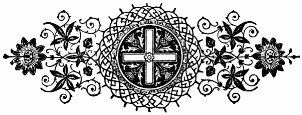
Pope Saint Benedict II
|

Pope Saint Benedict II![]() May 8th
May 8th ![]()
Date of birth unknown; died 8 May, 685; was a Roman, and the son of John. Sent when young to the schola cantorum, he distinguished himself by his knowledge of the Scriptures and by his singing, and as a priest was remarkable for his humility, love of the poor, and generosity. He became pope 26 June, 684, after an interval of over eleven months. To abridge the vacancies of the Holy See which followed the deaths of the popes, he obtained from the Emperor Constantine Pogonatus a decree which either abolished imperial confirmations altogether or made them obtainable from the exarch in Italy [cf. "Liber Diurnus RR. PP., ed. Sickel (Vienna, 1889), and Duchesne's criticism, "Le Liber Diurnus" (Paris, 1891)]. He adopted Constantine's two sons by receiving locks of their hair sent him by the emperor. To help to suppress Monothelitism, he endeavoured to secure the subscriptions of the Spanish bishops to the decrees of the Sixth General Council (see ep. in P.L., XCVI, 423), and to bring about the submission to them of Macarius, ex-Bishop of Antioch. He was one of the popes who favoured the cause of St. Wilfred of York (Eddius, "Vita Wilfridi", ed. Raine in "Historians of York", I, 62 sqq. Cf. Raine, "Lives of the Archbishops of York", I, 55 sqq.). Many of the churches of Rome were restored by him; and its clergy, its deaconries for the care of the poor, and its lay sacristans all benefited by his liberality. He was buried in St. Peter's.
The most important source for the history of the first nine popes who bore the name of Benedict is the biographies in the Liber Pontificalis, of which the most useful edition is that of Duchesne, Le Liber Pontificalis (Paris, 1886-92), and the latest that of Mommsen, Gesta Pontif. Roman. (to the end of the reign of Constantine only, Berlin, 1898). Jaffé, Regesta Pont. Rom. (2d ed., Leipzig, 1885), gives a summary of the letters of each pope and tells where they may be read at length. Modern accounts of these popes will be found in any large Church history, or history of the City of Rome. The fullest account in English of most of them is to be read in Mann, Lives of the Popes in the Early Middle Ages (London, 1902, passim).
The Catholic Encyclopedia, Volume II
Imprimatur. +John M. Farley, Archbishop of New York
|
|